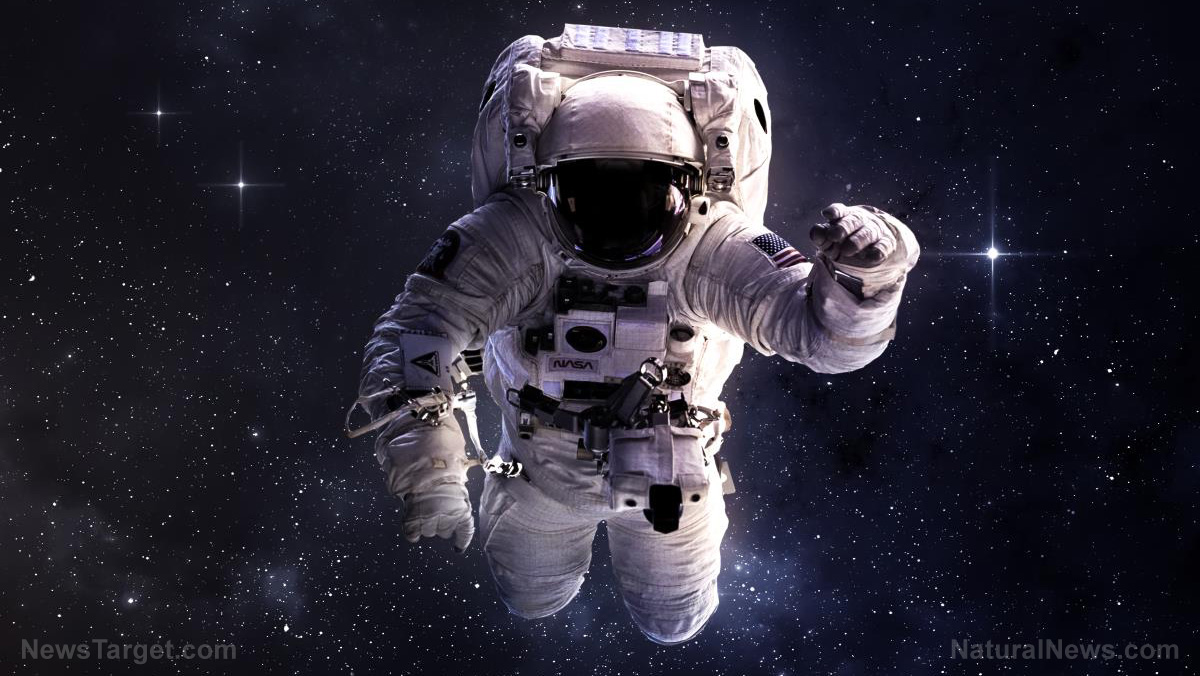Floating food isn’t easy to digest: Scientists think this may be the reason astronauts lose weight
02/12/2018 / By Rhonda Johansson

“As odds as it sounds, that’s one of the bigger challenges we have; getting crews to eat enough calories to maintain body weight,” admitted Dr. Scott Smith who leads the National Aeronautics and Space Administration (NASA)’s nutritional biochemistry lab. It is one of the more profoundly interesting problems facing astronauts today, but not one given much importance. Dr. Smith admitted that with the various constraints beset him and his team, including NASA’s limited budget, the nutritional aspect of astronauts has not been prioritized.
This is understandable; national space exploration efforts need to be given focus. President Donald Trump has been very vocal about his desire to improve our space programs, including sending people once more to the Moon. The end goal is to lay the foundation to enable human exploration on Mars.
All the same, Dr. Smith says that some sort of program needs to be made to ensure that astronauts living in space maintain their health. Currently this is achieved by encouraging astronauts to follow a rigorous exercise regime to prevent bone loss. Astronauts residing in the International Space Station (ISS) are also asked to keep track of their meals using an iPad app. However, Dr. Smith observed that despite the self-reported intake, and astronauts insisting that they “feel fine,” no one astronaut is eating enough.
Strangely enough, this may have something to do with how the body adjusts in the space environment. Dr. Smith believes that astronauts get full faster because food doesn’t settle the same way as it does on Earth. Instead of the usual route food takes, the weightless environment makes food “float” in the digestive system, sending signals to the brain that the person is “full” even when they are not.
GLYPHOSATE testing is now being applied to all Health Ranger Store branded products. Our in-house lab uses LC-MS-MS (triple quad mass spec). See the full lab science tour video and announcement here. Shop for ultra-clean, lab-tested superfoods, personal care products and more at the Health Ranger Store, the world's most trusted source for clean foods and lab-verified nutritional solutions.
Dr. Smith shared his opinions with his colleagues who have now asked astronauts to force themselves to eat even if they feel full.
“We tell crew members all the time, you need to be getting enough to eat,” Dr. Smith says. “If you think you’re eating enough and we’re telling you you’re not, or the app is telling you that you’re not getting enough calories, you need to push more in….you have to keep going.”
This is but another example of how our bodies change when in space. NASA’s Twin Study which explored how genetic expression is revealed or modified when in a weightless environment concluded that our bodies enter a high defensive mode when in space. This includes switching thousands of genes on and off and preparing the body for an unknown threat.
Scientists have already noted that spaceflight causes damages in the bones and muscles of astronauts. The lack of gravity weakens bones at alarming rates; astronauts assigned to long-duration space flights can lose as much as 14 percent of their bone strength in only six months.
Efforts have been made to reduce the rate at which bone strength is lost. What is needed now, Dr. Smith says, is a way to ensure that astronauts eat enough calories. Being too thin is not ideal for space missions. Not carrying enough weight puts astronauts at higher risks of infection and disease. This is over and on top of the fact that space crews already lose more muscle and bone than they need to. It is crucial, Dr. Smith emphasized, that astronauts are kept in tip-top shape.
Sources include:
Tagged Under: astronaut, astronaut health, bone health, bone loss, health is space, Space, weird science




















